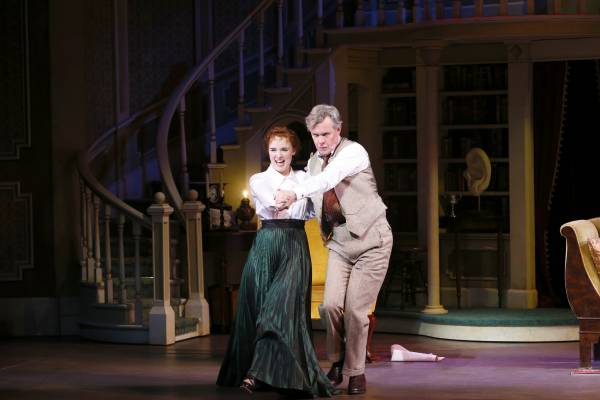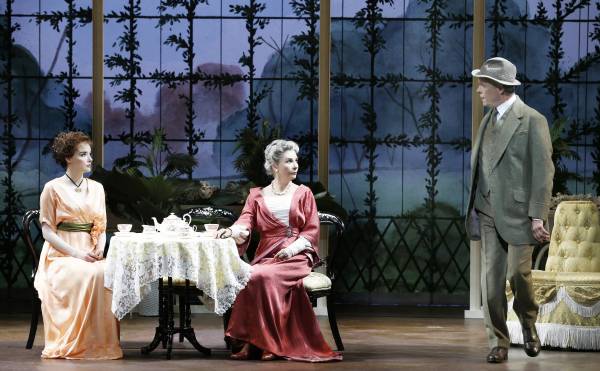Joan Sutherland Theatre, September 6
8.5/10

It seeps through this production as it did through Julie Andrews’ creation of the role of Eliza Doolittle in 1956: warmth. Where most sopranos, whether for musical theatre or opera, exude a glacial beauty, Julie Andrews had the miraculous ability to communicate felicity and warm-heartedness in her upper register. Fast-forward 60 years and something of that spirit is palpable in this joint production between the Gordon Frost Organisation and Opera Australia; a production that meticulously recreates Oliver Smith’s original set designs and Cecil Beaton’s much-admired costumes.
One of the wonders of My Fair Lady is that an Alan Jay Lerner, an American, could incorporate such quintessentially British wit into his dazzling book and lyrics (albeit with George Bernard Shaw as a guide). He and composer Frederick Lowe hit upon a seam of song-writing that gave the show its own distinctive sound-world, while lying comfortably within the Broadway tradition, and no other musical is packed with as many songs in the masterpiece league – at least 10 – as My Fair Lady.
Andrews cast the acclaimed British actor Alex Jennings as Henry Higgins (reprising a role he first performed 14 years ago), and it is easy to see why. Inevitably there is much of Rex Harrison in the portrayal (as there has been in every Higgins), but Jennings finds his own ways to make Higgins likeable amid the relentless arrogance, pride and bullying, not to mention the ruthlessly manicured speaking voice. He also happens to be a better singer than Harrison was.
For Eliza Andrews chose Anna O’Byrne (who even looks a little like her), and at first this seemed a less convincing decision. Although Wouldn’t It Be Loverly and Just You Wait were not exactly thrown away, O’Byrne did struggle to hit the sweet spot of singing those songs while maintaining her Cockney accent. Her performance flourished with her transformation, however, and The Rain In Spain was as good a version as you will hear, brimming with the shared exultancy that lays the seeds of some deeper regard between Eliza and Higgins.

Only a few years after playing Higgins, himself, Reg Livermore returns to this show as a storming, swaggering Alfred Doolittle, the shyster and layabout that no one – not even his put-upon daughter – can resist. Tony Llewelyn-Jones offers a commendable performance as the debonair and unerringly reasonable Colonel Pickering, whom one suspects of harbouring a secret hankering for Eliza throughout. Robyn Nevin is a suitably arch Mrs Higgins, Deidre Rubenstein a suitably prim Mrs Pearce and David Whitney a suitably oily Karpathy. The only weak link in the principals is Mark Vincent as Freddy. He seems just too wet, and his voice in On the Street Where You Live is underwhelming.
Christopher Gattelli’s choreography is refreshingly understated, and the Ascot scene works sensationally well, crowned, of course, by Beaton’s famed black-and-white frocks. Smith’s ingenious use of two revolves makes for some wondrous scene changes, while the sets, themselves, vary between charming impressionism and supreme elegance. The only disappointment in that regard is the show curtain, with its very ordinary panorama of London.
For all that she gets right, even Andrews struggles to solve the work’s inherent structural problem: once Higgins has triumphed in his coup of passing Eliza off at the ball the narrative slows dramatically, just when it should be accelerating towards the end. Lerner and Lowe paper over this flaw by making the five final songs exceptional, but still you feel the show flag. Nonetheless this is a delightful and sometimes thrilling realisation of the wittiest musical of them all.